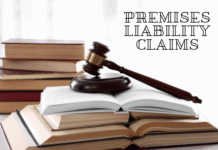Dealing with a personal injury is not just about physical pain; it’s also about navigating the legal landscape that comes with seeking compensation. The aftermath can be daunting, whether it’s a slip-and-fall incident, an auto collision, or another unfortunate event. Engaging the proper legal support, like the attorneys at Price Benowitz, can provide the necessary expertise to tackle legal hurdles efficiently. Mastering the legal maze requires understanding personal injury claims and leveraging professional guidance. This guide is tailored to demystify personal injury claims and equip you with the knowledge to handle potential challenges effectively. With insights into each critical aspect, you’ll be better prepared to pursue a claim with confidence and clarity.
Table of Contents
Understanding Personal Injury Claims
At its core, a personal injury claim arises when one party seeks to hold another accountable for harm caused by negligence or intentional malfeasance. These assertions seek monetary reparation for the plaintiff’s physical, emotional, and economic suffering. Personal injury law is a crucial safety net, offering a path to restitution when accidents disrupt lives. The realm of personal injury law is extensive, encompassing everything from minor accidents to grave injuries and addressing the full spectrum of losses incurred.
The legal landscape in the United States reveals many personal injury cases filed each year. Around 400,000 personal injury claims are filed annually, highlighting the prevalence and relevance of such legal proceedings in society.
Common Types of Personal Injuries
Personal injuries occur in many forms, from everyday accidents to unusual incidents. The most common types include:
- Slip and Fall Accidents: These represent a significant portion of personal injury claims and often occur due to unsafe premises.
- Motor Vehicle Accidents: Collisions occurring on the roadway are a prevalent cause of injury and can involve cars, motorcycles, bicycles, and pedestrians.
- Medical Malpractice: When medical practitioners neglect to deliver adequate care, patients may face serious consequences.
- Workplace Injuries: Injuries sustained in a workplace setting are common and often covered by workers’ compensation laws.
The Importance of Evidence in Personal Injury Cases
In any legal case, evidence is the cornerstone of a successful outcome, and personal injury claims are no exception. Comprehensive evidence not only strengthens your case but also expedites the resolution process. The evidence consists of photographic records documenting the incident scene and medical records outlining the severity of injuries and necessary treatments. Consider collecting eyewitness accounts to bolster your narrative and employing official reports, which add legitimacy to your claim. Such meticulous preparation is crucial, as lacking evidence can drastically weaken your case’s potential.
Steps to Take After an Injury
Swift action following any injury is paramount in ensuring medical safety and legal protection. Here is a practical checklist to guide your immediate response:
- Immediate Medical Attention: Prioritize health by consulting a medical professional, even if injuries seem minor. Prompt evaluation can prevent worsening conditions and provide a medical record.
- Detailed Documentation: Gather and secure all forms of evidence, including photographs, incident reports, and contact information for witnesses.
- Incident Reporting: To have an official event record, officially report the incident to appropriate entities, such as filing a police report or notifying an employer.
- Record Keeping: Organize all medical and financial documents related to the injury meticulously, as these will be pivotal in claiming compensation.
The Role of Insurance Companies
Insurance companies are integral to the personal injury landscape, assessing claims and providing compensation. Understanding their role is crucial as they often aim to minimize payouts. In dealing with insurers, communication is key; provide only necessary, accurate information and refrain from giving recorded statements without consulting legal counsel. Carefully review any settlement offers, as insurers frequently suggest preliminary bids that might not entirely address your losses. A strategic approach involves patience, negotiation skills, and leveraging legal advice to ensure fair compensation.
Hiring a Personal Injury Attorney
The process of personal injury claims can be intricate and daunting, making professional legal support invaluable. An experienced personal injury attorney provides strategic guidance and fiercely advocates your behalf. When choosing an attorney, consider their specialization in personal injury cases, past success rate, and client feedback. Furthermore, assessing their communication skills and availability is crucial, as a responsive attorney ensures high-quality representation and effective management of your case.
Expected Timeline for Personal Injury Cases
The duration of personal injury cases varies, influenced by the specifics and complexities inherent in each situation. Generally, you can anticipate the following timeline:
- Initial Consultation: This occurs soon after the injury and involves discussing the incident with potential legal representatives.
- Investigation and Filing Can take several weeks to months, depending on the case’s complexity and the required documentation’s thoroughness.
- Negotiations and Settlements: Reaching an agreeable resolution may take several months, particularly if parties engage in lengthy discussions.
- Court Proceedings: Should negotiation fail, cases may proceed to trial, significantly extending the timeline due to the court’s schedule and procedural requirements.
Apart from that if you want to know about “6 Expert Legal Tips from Long Island Injury Lawyer on How to Successfully go” then please visit our “Law” Category.
Frequently Asked Questions
Understanding personal injury claims can dispel common misconceptions and offer clarity. Here are answers to frequently asked questions:
Consider obtaining legal counsel to investigate the option of appealing the decision or pursuing alternative dispute resolution methods.
While it’s possible, having legal representation increases the likelihood of a favorable outcome, often resulting in higher compensation.
The compensation varies widely and is influenced by elements like the seriousness of the injury, its effects on your life, and the extent of negligence exhibited by the other party.



























